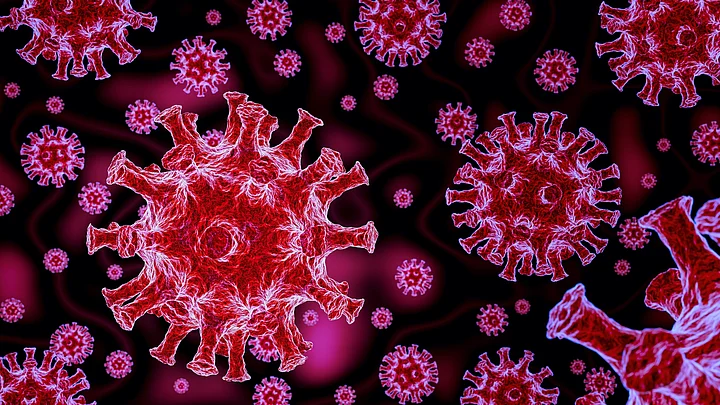Those fully inoculated with the Pfizer COVID-19 vaccine are likely to produce five times lower levels of neutralising antibodies against the Delta COVID variant (dominant in India) a study published in The Lancet has found.
Tests conducted on people who received both doses of the COVID vaccine showed reduced levels of antibody protection with age, especially over a duration of time, pointing to the possible need for booster shots.
People who had received only one dose of the vaccine showed an even lower antibody response.
As many as 79 per cent of the participants had neutralising antibodies against the original COVID strain after the first dose, whereas only 50 per cent had antibodies against the Alpha variant (B.1.1.7), 32 per cent for Delta variant (B.1.617.2) and 25 per cent for Beta variant (B.1351).
The study conducted by University College London Hospital and the Francis Crick Institute in London, UK, involved 250 healthy individuals vaccinated with one or both doses of the Pfizer vaccine.
Researchers plan on extending the study to the AstraZeneca vaccine as well, reported IANS.
"The most important thing is to ensure that vaccine protection remains high enough to keep as many people out of hospitals as possible. And our results suggest that the best way to do this is to quickly deliver second doses and provide boosters to those whose immunity may not be high enough against these new variants," Emma Wall, UCLH Infectious Diseases Consultant was quoted as saying by IANS.
Neutralising Antibodies: The Markers of Vaccine Protection
Let’s break down what it means for a vaccine to 'produce fewer neutralising antibodies', and, more importantly, why it matters.
Neutralising antibodies are produced by the B cells in the bone marrow in response to a pathogen (or a pathogen-simulating vaccine) to defend the body against the intruder by neutralising or destroying them.
These antibodies can record the memory of these pathogens and recognise them later. This characteristic is what vaccine technology built upon.
Vaccines are meant to trigger the body's immune response into producing specific antibodies to fight off a specific pathogen. Observing the number of antibodies produced by the person after vaccination can be a helpful indicator of the effectiveness of the vaccine.
Although antibody levels alone may not be sufficient indicators of the effectiveness of a vaccine against COVID-19, they have been regarded as strong correlates for protection since the development of the vaccines began.
Laboratory tests, such as these, are valuable in discerning the patterns of the behaviour of the first-generation vaccines against variants.
What This Means for the Vaccine Dosage Gap Guidelines
The study also talks about how the B.1.617 variant is now displacing the B.1.1.7 variant in the UK and spreading rapidly – a concern that led health authorities to examine the existing vaccines and the protection they provide.
The study further bolsters the UK's plans to reduce the gap between the two doses of the vaccine based on a previous study by Public Health England (PHE).
The PHE study found that one dose of the Pfizer vaccine only provided 33 per cent protection against symptomatic infection by the B.1.617.2 variant.
Meanwhile, in India, where the Delta variant was first found – and is thought to be the driving force behind the devastating second wave – the gap between two doses of the Covishield vaccine was extended to 12-16 weeks on 13 May.
The extension in the vaccine dosage gap in India, owing to a delay in vaccine rollout and other hiccups, has been backed by experts citing data that points to greater efficacy with a longer gap.
For instance, a study published in The Lancet in February found that Covishield’s efficacy was closer to 55.1 per cent when the dosage gap was less than six weeks. The efficacy increased to 81.3 per cent when administered 12 weeks apart.
Speaking to FIT for a previous article, virologist Dr Gagandeep Kang came out in support of the 12-week gap.
“The UK decided early on that for both Pfizer and Covishield vaccines, they will delay the second dose by three months. Now, we have real-world data of what a single dose of AstraZeneca vaccine can achieve. The single dose provides very good protection, preventing hospitalisation and death. So, it can offer protection for at least three months. If there is an issue with the supply of the AstraZeneca vaccine, you can safely delay up to three months.”Dr Gagandeep Kang
A second recommendation by the National Immunization Technical Advisory Group, yet to be adopted, is on waiting for six months after COVID infection to take the vaccine.
At the time, the UK authorities, the European Medical Agency (EMA) and the World Health Organisation (WHO) recommended the 12-week gap.
However, this new study points out that the decision which was based on maximising population coverage, “might have had a limited impact of protection against parental SARS-CoV-2 strains or the B.1.1.7 variant, (as) the potential impact on protection from other VOCs is poorly understood.”
In light of the new data that has emerged regarding the Delta variant's response to the first-generation vaccines, the UK authorities are now looking at reviewing these guidelines to reduce the gap.
The question then arises, will India, where the Delta variant has so far been found to be the dominant variant, also reconsider shortening the vaccine dosage gap? Or will this decision continue to be guided primarily by the hiccups in the vaccination drive in the country?
(This story was first published on FIT and has been republished here with permission.)
